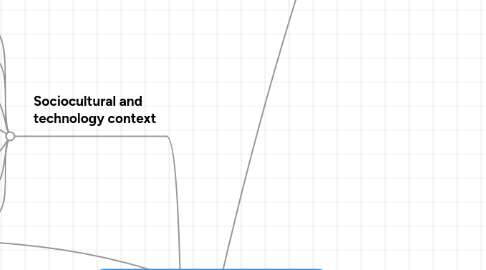
1. DEMAND
1.1. Teachers: the doubters, the wary, the uncommitted, the converted, the evangelists
1.1.1. Performance Review
1.1.2. School Staffing structures
1.1.2.1. AST
1.1.2.2. Bursar
1.1.2.3. CPD Manager
1.1.2.4. Disability Specialists
1.1.2.5. FT, PT & FTE staff
1.1.2.6. Governors
1.1.2.7. HLTAs
1.1.2.8. Head of Dept
1.1.2.9. Headteacher
1.1.2.10. Mentors
1.1.2.11. Peripatetics
1.1.2.12. SMT/SLT
1.1.2.13. Subject specialis / Subject Lead
1.1.2.14. Supply staff
1.1.2.15. Support staff
1.1.2.16. Teacher
1.1.3. contextual factors
1.1.3.1. Availability of technology/"ownership"
1.1.3.2. Complex Change
1.1.3.2.1. Action Plans
1.1.3.2.2. Evaluations
1.1.3.2.3. Incentives/rewards
1.1.3.2.4. Resources
1.1.3.2.5. Skills
1.1.3.2.6. Vision
1.1.3.3. Time
1.1.3.4. age
1.1.3.5. geographical location
1.1.3.6. habitus of learning
1.1.3.7. number of years in profession
1.1.3.8. perceptions and dispositions
1.1.3.8.1. disempowerment
1.1.3.8.2. media use in everyday lives
1.1.3.8.3. perceived threat from changing power dynamics
1.1.3.9. skill level
1.1.3.10. subject specialism
1.1.3.11. technology use in everyday life
1.1.3.12. work environment as inhibiting connectedness
1.2. Institutions: Early Adopters, Diffusion Stage, Late Adopters
1.2.1. Leadership
1.2.1.1. Availability of technology/"ownership"
1.2.1.2. Capitals: intellectual, social, organisational etc
1.2.1.3. Complex Change
1.2.1.3.1. Action Plans
1.2.1.3.2. Evaluations
1.2.1.3.3. Incentives/rewards
1.2.1.3.4. Resources
1.2.1.3.5. Skills
1.2.1.3.6. Vision
1.2.1.4. networks: internal and external
1.2.1.5. strategic planning
1.2.1.6. work environment as inhibiting connectedness
1.2.2. League Tables
1.2.3. Performance Review
1.2.3.1. ICT Mark
1.2.3.2. Ofsted
1.2.3.3. Teachers
1.2.4. School Groups & Types
1.2.4.1. Academies
1.2.4.2. Black Country Challenge
1.2.4.3. City Challenge
1.2.4.4. Clusters
1.2.4.5. Federations
1.2.4.6. Independents eg GDST
1.2.4.7. London Challenge
1.2.4.8. SSAT
1.2.4.9. United Church Schools Trust
2. CLIMATE
2.1. Sociocultural and technology context
2.1.1. Becta 2008
2.1.2. Convery 2009
2.1.3. ESRC2008
2.1.4. Horizon2008
2.1.5. JISC 2007
2.1.6. MacArthur2008
2.1.7. MediaLiteracy Audit Ofcom 2008
2.2. National Policy Context
2.2.1. 2020 Vision - The Gilbert Report
2.2.2. Digital Britain
2.2.3. E-Government
2.2.4. E-Maturity
2.2.5. Harnessing Technology
2.2.6. Leitch Report
2.2.7. Rose Review
2.2.8. Transforming Teaching and Learning
2.3. Global and National Policies
2.3.1. 21st Century teachers: expectations
2.3.2. Global initiatives
2.3.2.1. OECD Indicators
2.3.2.2. Schools of the Future
2.3.2.3. Trans-Atlantic School Innovation Alliance
2.3.3. Government-related initiatives
2.3.3.1. Academies/sponsors
2.3.3.2. Achievement for All
2.3.3.3. BSF
2.3.3.4. Every Child Matters
2.3.3.5. Every Child Matters
2.3.3.6. Primary Capital
2.3.3.7. SSAT
2.3.3.8. Teach First
2.3.4. Ofsted
2.4. Research summaries, syntheses
2.4.1. BECTA
2.4.1.1. Research reports
2.4.2. DCSF
2.4.2.1. Monthly research newsletter
2.4.3. EPPI Centre
2.4.3.1. Systematic Reviews
2.4.4. GTC
2.4.4.1. Research of the month
2.4.5. Models investigated
2.4.5.1. Constructivism
2.4.5.2. Information transmission
2.4.5.3. Interaction
2.4.5.3.1. Communities of Practice
2.4.5.3.2. Critical reflection model
2.4.5.3.3. Teacher enquiry model
2.4.5.3.4. Casemaking studies
2.4.6. NFER
2.4.6.1. On the web
2.4.7. Reflecting Education
2.5. Stakeholders
2.5.1. Agencies
2.5.1.1. TDA
2.5.2. Becta
2.5.3. Children
2.5.4. DCSF
2.5.5. GTCe
2.5.6. Governors
2.5.7. LAs
2.5.7.1. Advisors
2.5.7.2. SIPS
2.5.8. OFSTED
2.5.9. Parents
2.5.10. Political parties
2.5.11. Schools
2.5.12. Teaching Unions
2.5.12.1. ATL
2.5.12.2. NAS/UWT
2.5.12.3. NUT
2.5.12.4. Voice
3. Supply
3.1. Providers
3.1.1. Hardware/software companies
3.1.1.1. 2Simple
3.1.1.1.1. Professional development
3.1.1.2. BBC
3.1.1.3. BESA links & data
3.1.1.4. Cambridge-Hitachi
3.1.1.5. Clicker
3.1.1.6. Espresso
3.1.1.7. Immersive Education
3.1.1.8. Microsoft Innovative Leaders (charity)
3.1.1.9. Promethean
3.1.1.10. RM
3.1.1.11. Steljes
3.1.1.12. ThinkQuest - Oracle Education Foundation
3.1.2. Individual & Group Influences
3.1.2.1. Becta & collaboration
3.1.2.2. Blogosphere
3.1.2.2.1. Doug Belshaw
3.1.2.2.2. Fremdsprachen und Neue Medien
3.1.2.2.3. Jose Picardo
3.1.2.2.4. Larry Ferlazzo
3.1.2.2.5. Leon Cych
3.1.2.2.6. Nik's Daily English activities
3.1.2.2.7. Ollie Bray
3.1.2.2.8. Tom Barrett
3.1.2.3. Communities of Practice
3.1.2.3.1. MirandaNet
3.1.2.4. EdTechRoundUp
3.1.2.5. Every Child Matters
3.1.2.6. Exam Boards
3.1.2.6.1. Edexcel
3.1.2.6.2. OCR
3.1.2.7. Games-based Learning
3.1.2.8. Handheld Learning
3.1.2.9. Independent advisers
3.1.2.10. Independents
3.1.2.11. International collaboration: Connecting Classrooms
3.1.2.12. National Strategies
3.1.2.13. Ofsted
3.1.2.14. QCDA
3.1.2.15. SENIT
3.1.2.16. Strategy advisers
3.1.2.17. TDA Advisers
3.1.2.18. TDA ICT Skills Test
3.1.2.19. TeachMeet
3.1.2.20. Twitter
3.1.3. Universities
3.1.3.1. Academy Sponsors
3.1.3.2. Bath Spa University
3.1.3.2.1. CEIT
3.1.3.3. CETLs
3.1.3.4. CPD Centres/Departments
3.1.3.5. Institute of Education
3.1.3.6. London Knowledge Lab
3.1.3.7. M-level Professional Qualifications
3.1.3.8. MTL Consortia
3.1.3.9. OU
3.1.3.9.1. Vital: ICT CPD project
3.1.3.10. School Partnerships
3.1.3.11. Third stream/consultancy/knowledge transfer
3.1.4. Organisations that offer CPD
3.1.4.1. College of Teachers
3.1.4.2. Core
3.1.4.3. Futurelab
3.1.4.4. IPDA
3.1.4.5. National Centre for Excellence in the Teaching of Mathematics
3.1.4.6. Professional associations
3.1.4.6.1. Becta ICT Mark
3.1.4.6.2. Naace
3.1.4.7. SSAT
3.1.4.8. Science Learning Centres
3.1.4.9. Teachable.net
3.1.4.10. Teaching Unions
3.1.4.10.1. ATL
3.1.4.10.2. NAS/UWT
3.1.4.10.3. NUT
3.1.4.10.4. Voice
3.1.5. ICT Service Providers
3.1.5.1. BBC
3.1.5.2. C4
3.1.5.3. DV content providers
3.1.5.4. GTCE TLA
3.1.5.5. Learning platforms
3.1.5.5.1. Core
3.1.5.5.2. DB Education
3.1.5.5.3. Etech
3.1.5.5.4. Frogtrade
3.1.5.5.5. Fronter etc
3.1.5.5.6. IM Jack
3.1.5.5.7. Netmedia
3.1.5.5.8. RM
3.1.5.5.9. Ramesys
3.1.5.5.10. Sirco
3.1.5.5.11. Uniservity
3.1.5.5.12. Viglen
3.1.5.6. MirandaNet
3.1.5.7. RM
3.1.5.8. Society21
3.1.5.9. TDA Training Centres
3.1.5.10. Teachers TV
3.1.5.11. Tribal
3.1.5.12. teachernet
3.1.6. Subject Associations
3.1.6.1. Cilt
3.1.6.2. Council for Subject Associations
3.1.6.2.1. ASE
3.1.6.2.2. All
3.1.6.2.3. D and TA
3.1.6.2.4. Geographical Association
3.1.6.2.5. Historical Association
3.1.6.2.6. Maths
3.1.6.2.7. NATE
3.1.6.2.8. Science Centres
3.1.6.3. ITTE
3.1.6.4. Naace
3.1.7. LAs
3.1.7.1. ASTs
3.1.7.2. CLCs
3.1.7.2.1. Stoke-on-Trent CLCs
3.1.7.3. Cambridgeshire Education ICT Services
3.1.7.4. Central CPD programmes
3.1.7.5. Connexions Nottinghamshire
3.1.7.6. Kirklees Children & Young People's Service - Learning
3.1.7.7. LA advisors
3.1.7.8. SIPs
3.1.7.9. Strategy Advisers
3.1.8. School level internal ICT programme support
3.1.8.1. AST, ET and others - HLTA, technicians etc
3.1.8.2. Heads
3.1.8.3. ICT CPD programme managers
3.1.8.4. SIPs
3.1.9. RBC
3.1.9.1. LGFL
3.1.9.1.1. Curriculum Consultants
3.1.9.1.2. MLE Trainers
3.1.9.1.3. Partners; LAs, CLCs
3.1.9.2. SEGFL
3.1.10. Private CPD Providers
3.1.10.1. Creative Education
3.1.10.2. Espresso
3.1.10.3. Graham Brown-Martin
3.1.10.4. Lighthouse
3.1.10.5. Mill Wharf Training
3.1.10.6. Philip Mann
